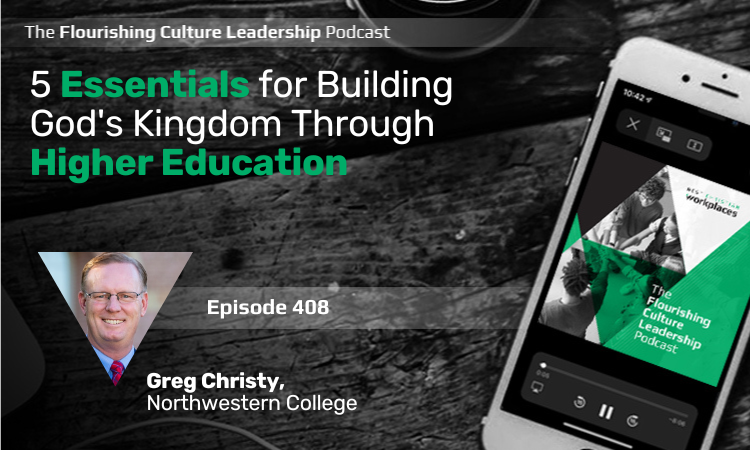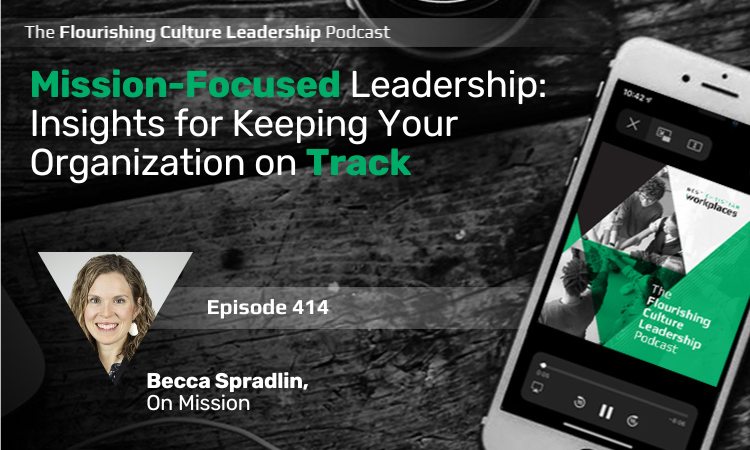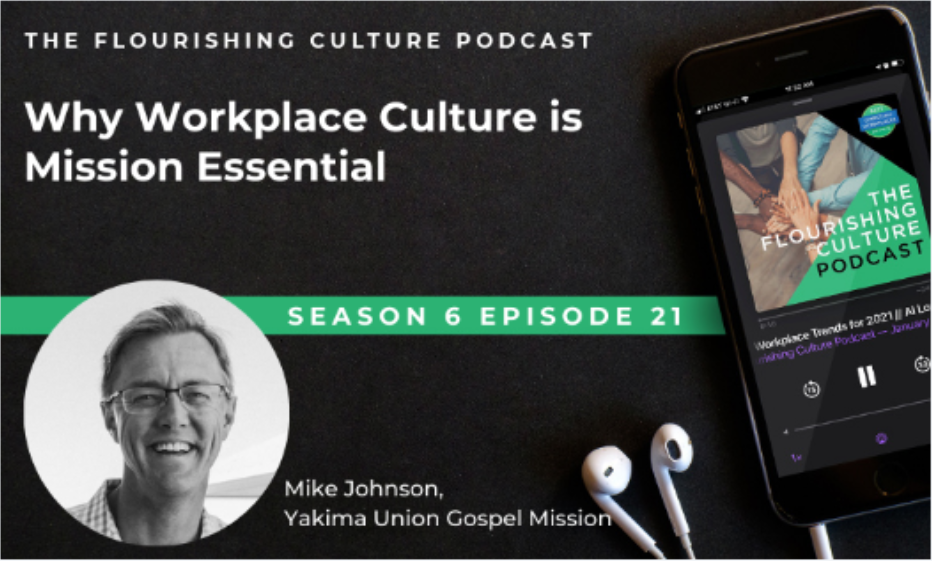In today's episode, we're uncovering the power of mission-driven leadership with Greg Christy, president of Northwestern College, as he shares how clear communication and intentional culture-building have transformed his institution.
Listen to the Audio
Listen in Apple Podcasts | Listen in Spotify | Listen in Google Podcasts
In this episode:
About Northwestern College:
- Northwestern College is a Christian institution with a mission centered on engaging students in "courageous and faithful learning and living." (04:01)
- Located in Orange City, Iowa, the college has grown under Greg Christy’s leadership, expanding academic offerings, improving campus facilities, and seeing sustained growth. (04:36)
Leadership and Cultural Change:
- Greg shares his experience with employee engagement and working with Best Christian Workplaces since 2014. (05:54)
- After a tough period in 2015, when leadership changes were made, Greg’s team worked on improving culture and engagement, leading to steady growth and becoming a certified Best Christian Workplace. (06:15)
- Greg emphasizes the importance of culture, noting that "culture eats strategy for breakfast." (07:05)
Mission and Vision Clarity:
- Early on, Greg realized the need for a clearer mission at Northwestern. After a year of collaboration, the community established a concise mission statement that is now widely embraced by faculty and students. (08:15)
- The mission has become embedded in the college’s culture, with faculty and students using it in conversations and decision-making. (08:43)
Team Building and Leadership Transitions:
- Greg highlights the importance of hiring for mission fit, meeting personally with all finalists for positions to ensure alignment with the college’s values. (10:33)
- During periods of leadership transition, Greg prioritizes building a cohesive leadership team focused on the college’s mission, sometimes making hard decisions to enable growth. (11:09)
Role of Leadership in Mission Alignment:
- The president’s responsibility is to consistently remind everyone of the mission and keep it front and center. (15:28)
- Frequent communication of the mission helps ensure that all roles, whether internal or external, remain aligned toward the same goal. (15:50)
Stakeholder Engagement and Ownership:
- If any group loses focus on the mission, it prompts a conversation to realign with the overarching goal. (16:25)
- All members of the community, including trustees, faculty, staff, and students, have had a hand in developing the mission statement, creating collective ownership. (16:42)
- The focus is on building God’s Kingdom through education, and that remains a constant reminder in interactions with every group involved. (17:07)
Enrollment and Retention:
- Northwestern College has experienced six consecutive years of record enrollment, including their largest freshman class this year. (18:20)
- Retention rates hover around 78–80%, which is slightly lower this year but still strong. (18:27)
- 87% of Northwestern graduates remain engaged in church and service, a statistic that stands out in today’s culture. (23:34)
Navigating Cultural and Social Issues:
- Northwestern College upholds biblical teachings, including on topics like human sexuality, while promoting a posture of humility and grace. (24:54)
- The institution practices open enrollment, welcoming students from different faith backgrounds. (25:40)
- The college emphasizes the importance of balancing truth and grace, acknowledging that this approach can sometimes be uncomfortable or challenging. (26:54)
- Faculty and staff are educated yearly on social and cultural issues, ensuring alignment with the College’s biblical stance while encouraging respectful dialogue. (27:12)
Leadership Growth and Development:
- Greg emphasizes that leadership effectiveness declines when learning stops, and he encourages leaders to remain curious and open to new insights. (29:07)
- Greg Christy attributes his growth as a leader to continuous learning and mentorship from past presidents with different leadership styles. (29:18)
- He has found significant value in attending the Global Leadership Summit and reading leadership books by authors like Ken Blanchard and Jim Collins. (29:44)
Personal Leadership Philosophy:
- Greg believes that “no one cares how much you know until they know how much you care.” (34:25)
- He practices writing handwritten personal notes to faculty, staff, students, and prospective students as a way to show genuine care and recognition. (34:35)
- This personal touch humanizes leadership and fosters a sense of connection within the college community. (35:16)
Closing Thoughts:
- He also expressed appreciation for Cary Humphries and his valuable contributions to the college over the past decade. (35:40)
Read the Transcript
Read a complete, word-for-word transcript of the episode
FOLLOW OUR HOST
Follow our Host, Al Lopus, on LinkedIn & Twitter.
Email our host at al@workplaces.org
 Best Christian Workplaces
:
September, 23 2024
Best Christian Workplaces
:
September, 23 2024


